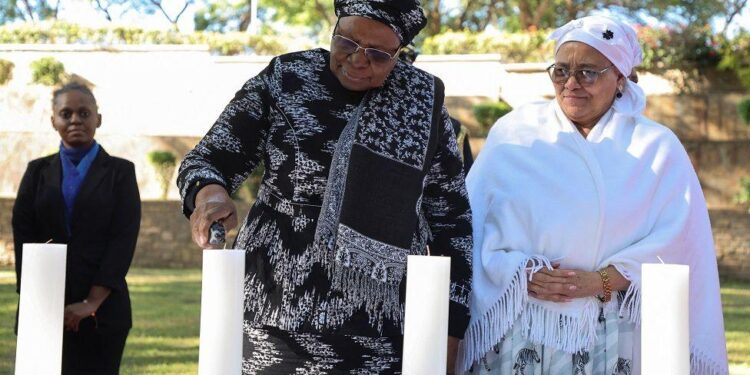Namibia honored the victims of mass killings during German colonial rule with an inaugural memorial day, as politicians and affected communities voiced fresh calls for reparations from Berlin.
The country marked Genocide Remembrance Day on May 28, commemorating the date German colonial authorities ordered the closure of concentration camps in 1907.
German soldiers killed around 65,000 OvaHerero and 10,000 Nama people between 1904 and 1908, in what historians and the United Nations have termed the first genocide of the 20th century.
President Netumbo Nandi-Ndaitwah emphasized the need for satisfactory reparations, stating, “The recognition of this genocide without adequate reparative justice remains incomplete.”
Although Germany officially acknowledged the massacre as a genocide in 2021 and agreed to fund development projects worth 1.1 billion euros ($1.2 billion) over 30 years, Namibian officials believe this offer falls short.
Negotiations between Namibia and Germany are ongoing, with the Namibian government insisting on a fair deal that addresses the grievances of the directly affected communities.
The commemoration included a minute of silence and a candlelight vigil outside parliament in Windhoek. Some representatives of the OvaHerero community boycotted the event, citing the inadequacy of Germany’s offer and their exclusion from negotiations.
Despite Germany’s acknowledgment of moral and political responsibility, many Namibians demand more substantial reparations, including land restitution and a formal apology.









